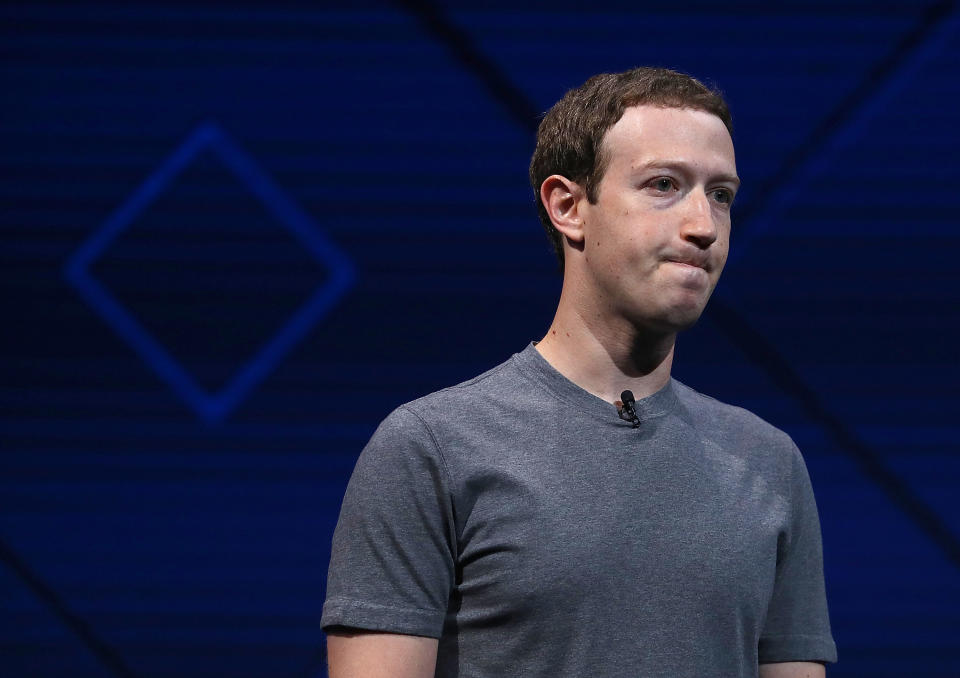Zuckerberg admits Russians exploited Facebook during last year’s election
No company likes to admit it made a mistake, and Facebook is feistier than most. But Facebook CEO Mark Zuckerberg has essentially admitted that Russian interests exploited the social-media giant to interfere in last year’s US elections.
Zuckerberg didn’t explicitly say Facebook screwed up. But in a short video broadcast on his Facebook page Thursday afternoon, he made indirect references to “what happened here,” vowing that “we can do more” and saying “we are in a new world. It’s a new challenge for internet companies having to deal with nation-states trying to interfere with elections.”
The full extent of Russia’s involvement in last year’s elections still isn’t fully known, which is one reason special counsel Robert Mueller is investigating. But Russian interests, among other things, purchased ads on Facebook that generally praised Donald Trump—the Kremlin’s preferred candidate—while deriding his opponent, Hillary Clinton. In general, it’s illegal for foreign interests to run ads in the United States on behalf of political candidates.
[Related: Maybe Facebook and Twitter should be regulated like TV.]
Russian operatives also appear to have created millions of fake accounts on both Facebook and Twitter, meant to fill social media with pro-Trump propaganda. That’s not necessarily illegal, but it does tarnish the trustworthiness of the two platforms and raise questions about whether they are tacit contributors in the possible tilting of an election.
Mueller has already obtained data from Facebook on the Russian ads and related matters, presumably using subpoena power. Congressional committees, also investigating Russian meddling in the election, have also asked for information. Facebook initially refused. But Zuckerberg now says he’ll give Congress much or all of the information Mueller has, including 3,000 Russian ads that ran on the platform last year. (That means they’ll probably leak soon to the press.)

Zuckerberg shrewdly realized that Facebook is facing a new kind of challenge in Washington, with prominent politicians such as Virginia Sen. Mark Warner, a Democrat who’s the ranking minority member on the Senate Intelligence Committee, saying the company is withholding information. Congressional committees are likely to summon Zuckerberg or other Facebook execs to testify, and it’s quite possible Congress could propose new legislation to regulate foreign activity on social media, since Facebook seemed incapable of policing such problems itself last year.
Zuckerberg announced nine new initiatives that he undoubtedly hopes will preempt new regulations and mend relationships with Washington. In general, they amount to beefing up Facebook’s own investigations of suspect activity and focusing on election integrity in particular. One specific change will be requiring every paid political ad to include disclosure about who paid for it, with links to that party’s Facebook page, if there is one. That will apply in foreign elections, as well.
Will it work? The answer probably depends on what Mueller’s investigation turns up — and how deep the Russians really burrowed into Facebook, Twitter and other social-media networks. Zuckerberg himself admitted that “we may find more” as the hunt continues for Russian fingerprints.
Election integrity is arguably more serious than other issues Facebook has encountered, such as privacy and antitrust concerns. Policymakers may not be willing to trust Facebook and impose new rules instead. The company, after all, has said “trust us” before, and at the moment, we trust it less.
Confidential tip line: [email protected]. Encrypted communication available.
Read more:
There’s a new twist in the latest GOP plan to kill Obamacare
Bernie Sanders’ health plan is heading in the wrong direction
Rick Newman is the author of four books, including Rebounders: How Winners Pivot from Setback to Success. Follow him on Twitter: @rickjnewman
